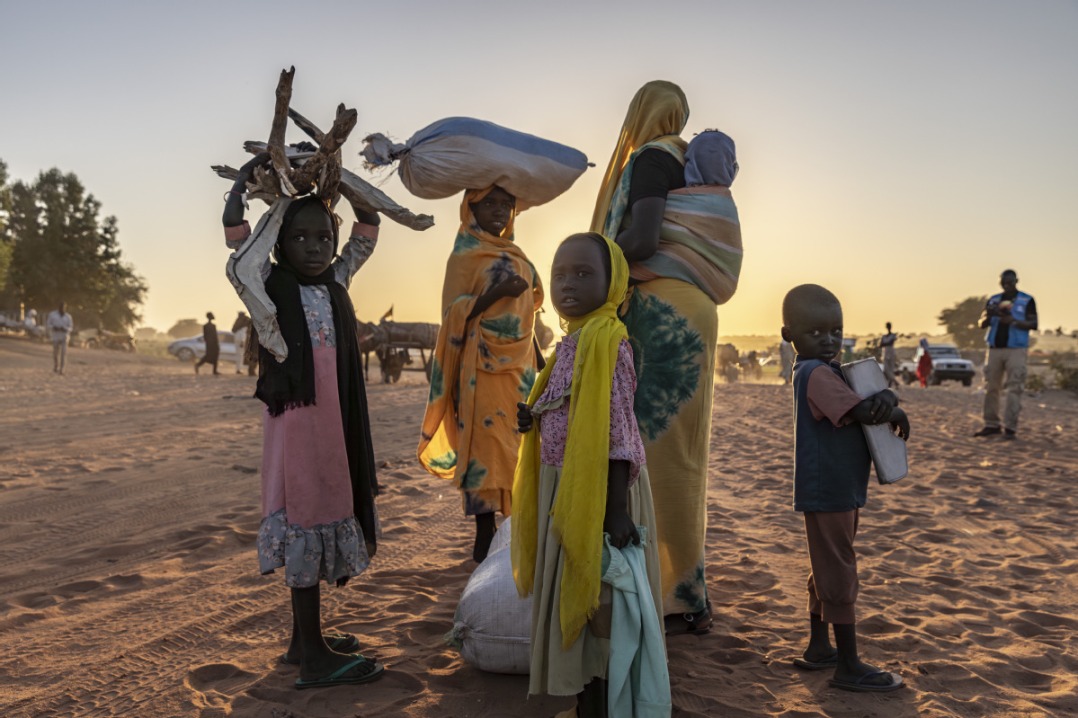Saving land and oceans not easy goal


Nature loss is accelerating rapidly as one million species face extinction
The commitment by China and some 50 other countries to protect 30 percent of the earth's land and oceans by 2030 was a much-needed step to halt biodiversity loss and prevent species extinction, analysts said.
Realizing the mission, though, will not be easy as the new goal would mean a huge scale-up in the protected land and ocean area compared to current levels, they said.
The new commitment by 50-odd countries is "very positive and very much needed to address the linked global crisis we are facing on climate change and biodiversity loss", said Bruce Dunn, director of environment and safeguards at the Manila-based Asian Development Bank's Sustainable Development and Climate Change department.
"Realizing this ambition will be challenging, however, because it means doubling the existing land area protected, and more than tripling the area of protected oceans," Dunn said.
China was among a group of more than 50 countries that pledged to protect 30 percent of the planet's land and sea area by 2030 as part of efforts to halt species extinction and address climate change issues.
The commitment was made at the UN-backed One Planet Summit, which was hosted by France and took place virtually for the most part, on Jan 11, when political leaders vowed to reverse the accelerating destruction of the nature.
Boost environment
China has drawn red lines for ecological protection that cannot be crossed, set up a national park system and implemented major projects for biodiversity protection. It will continue to improve environmental quality and build a beautiful China in accordance with the requirements of high-quality development, Vice-Premier Han Zheng said in his summit address via video link.
The "30-30" initiative could become the cornerstone of the Conference of the Parties to the Convention on Biological Diversity (COP 15) meeting in Kunming, China, later this year when a Post-2020 Biodiversity Framework will be formulated for action over the next decade.
The One Planet Summit was initiated by the United Nations, the World Bank and France in 2017. It focused on global climate and environmental governance, with three editions held so far. Absent from the event were Australia and the United States.
Translating the commitment of the more than 50 nations into action, the ADB's Dunn said, would require a number of steps including linking initial commitments with global strategies and agendas aligned with the UN Convention on Biological Diversity and the Paris Agreement on climate change.
Other steps include reconciling competing development priorities and land use pressures that drive deforestation.
This would include reforming subsidies and incentives, recognizing community and indigenous peoples' rights and involvement in protected areas management, and scaling-up financing for nature-positive investments.
"If one thinks of the gap between the degree of the crisis and what is being done, biodiversity loss would rank highest among planetary crises," said Vinod Thomas, visiting professor at the Lee Kuan Yew School of Public Policy at the National University of Singapore.
He noted the Intergovernmental Science-Policy Panel on Biodiversity and Ecosystem Services has just warned that nature loss is accelerating at an unprecedented rate, with grave impacts for human well-being, and that a million species face extinction.
The ADB's Dunn said COP 15 will "provide a significant opportunity to build momentum to value nature and drive investments that will have a positive impact on restoring and conserving the natural systems on which our societies rely."
Thomas added: "In the midst of pandemics and growing natural disasters, countries must match their rhetoric with financing. One avenue is to put nature and biodiversity at the center of climate actions."
That calls for close coordination and integration between the UK-hosted COP 26 on global climate change next year and this year's China-led biodiversity discussions and agreements, he said.
"Nature-based climate solutions, for example action on deforestation and investment in reforestation, can comprise the source for one third of the reductions in greenhouse gases," Thomas said.































